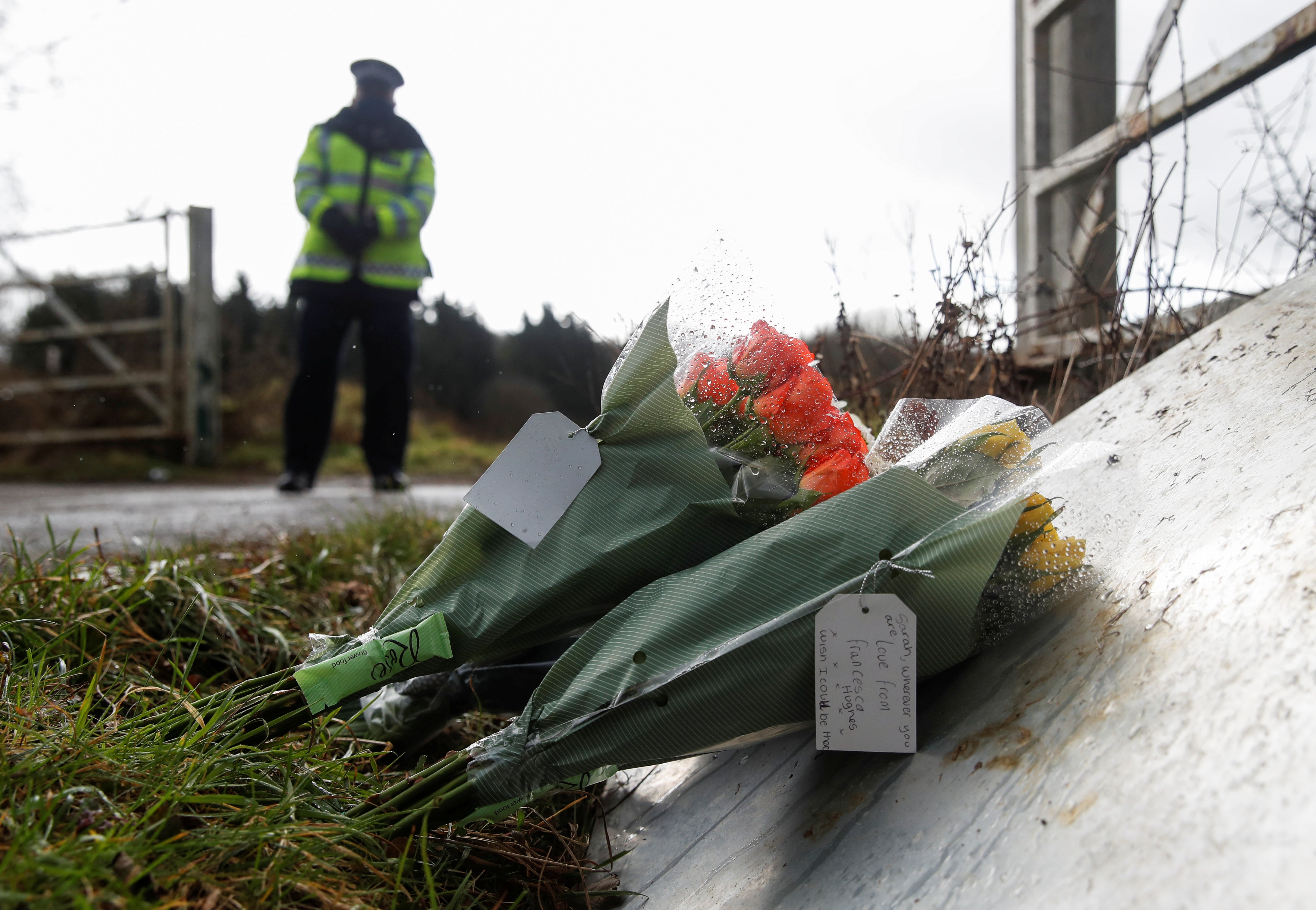Sarah Everard: High Court refuses to intervene over police attempt to ban Reclaim These Streets vigils
Judge says court ‘cannot comment’ on row over whether police should allow socially-distanced event
A High Court judge has refused to intervene in a legal battle between organisers of vigils, sparked by the death of Sarah Everard, and the Metropolitan Police.
The judge’s decision effectively means the police can stand by their position of advising organisers that Saturday’s event could be unlawful.
But some women remained defiant, pledging to attend to pay tribute to Ms Everard and other victims of violence.
Campaigners had been seeking a declaration on the “correct legal position” over current lockdown laws, which neither explicitly ban nor explicitly allow protests.
A group called Reclaim These Street said it initially received a positive response when it approached Lambeth Council and the Metropolitan Police over a vigil planned for Clapham Common on Saturday.
But it said the police later reversed their position, saying the event would be unlawful and that organisers could face £10,000 fines under coronavirus laws, and prosecution under the Serious Crimes Act.
Tom Hickman QC, representing Reclaim These Streets, urged the High Court to make a declaration that would “require the police to think again about whether or not this demonstration is in fact a legitimate exercise of [human] rights of those participating in it”.
Mr Hickman said coronavirus laws required people to have a “reasonable excuse” to gather in public, asking: “What could be more reasonable than exercising your right to protest?”
Following the announcement of the vigil at Clapham Common, near where Ms Everard disappeared while making her way home from a friend’s house last week, dozens of similar protests were announced across the UK.
But regional police forces said they would be guided by the High Court ruling over whether they would facilitate the events or crack down on organisers.
Mr Justice Holgate refused to make a declaration on the correct interpretation of the Health Protection Regulations or a separate declaration that an alleged policy by the Metropolitan Police of “prohibiting all protests, irrespective of the specific circumstances” is unlawful.
Giving his ruling, he said the move would be “appropriate for the court”.
“Given what has happened at the hearing, it may well be that there will be further communication between the claimants and the solicitors they instruct and the police, to deal with the application of the regulations and [the rights to freedom of expression and assembly] to this particular event,” he said.
Organisers of the planned vigils had accepted that they would constitute a “gathering” under coronavirus legislation, but would be “socially distanced” and take account of public heath guidance.
“It is proposed to organise it in a responsible manner, in co-ordination with the council and the police,” Mr Hickman said. “Arrangements will be made to ensure that it is conducted in a Covid-secure manner.”
Mr Hickman told Mr Justice Holgate: “The Metropolitan Police have said to my clients that this gathering cannot go ahead because gatherings are prohibited under the regulations.
“They say that any gathering of people which constitutes a protest is prohibited by the regulations and it is not up to them, the police, to make an assessment of whether or not it would be reasonable.”
George Thomas, representing the force, said police had not implemented a “blanket ban” on protest, but that they had discretion on how to respond to planned events.
“The Metropolitan Police says that this is very clearly not an event that the regulations, on the face of it, permit and it is an event where it would plainly be proportionate for the police to impose restrictions on it,” Mr Thomas told the court.
Commander Catherine Roper, the Met’s lead for community engagement, said after the hearing: “No woman in London should be unsafe on London’s streets, and I understand the strength of feeling that has grown following Sarah’s disappearance. As a woman and a police officer, I want nothing more than for women to feel safe and protected by the police.
“But we need to be clear: our city is still in a battle with Covid-19 with people continuing to be infected and sadly losing their lives. Only a few weeks ago our NHS was at breaking point, we cannot risk undoing all the hard work to reduce the infection rate.

“Today’s ruling in the High Court has confirmed that the Metropolitan Police may conclude that attendance at a large gathering could be unlawful.
“In the light of this ruling, our message to those who were looking to attend vigils in London this weekend, including at Clapham Common, is stay at home or find a lawful and safer way to express your views.”
She acknowledged it would be a disappointment, but asked women to find a safe alternative way to express their views.
Some protesters remained defiant, none the less. One woman from London said she would attend the vigil regardless of the outcome of discussions with the police.
Becki Elson, from Brixton, was one of many pledging on social media to go, saying she would be at Clapham Common at 6pm with her 19-year-old daughter.
“Even if no one else shows up, we will take a moment to remember Sarah and leave a candle for her,” she said.
“I’m angry... for the response of the police to be to tell women to further restrict their behaviour, and then the courts to refuse our right to hold a vigil for Sarah, I’m incandescent.
“It’s time for women to fight back, to take control, to lead the way out of this nightmare that has lasted the entire span of human history.”
Ms Elson said police should work with campaigners and stand, socially distanced, with those taking part in the demonstration.
A spokesperson said the government recognised “why so many women and girls across the country want to pay their respects”.
“We are still in the middle of a pandemic, which is why we urge people to do this safely and to continue to avoid mass gatherings,” a statement added.
Earlier on Friday, the prime minister said: “I think that the whole country will be united in their feeling for her friends, her family and will share their shock and their grief,” Boris Johnson told reporters at Queen's University Belfast.
“I can see, and I totally understand, why this has triggered such a wave of feeling on this issue – on the issue of safety of women and safety of the streets.”
Additional reporting by PA






